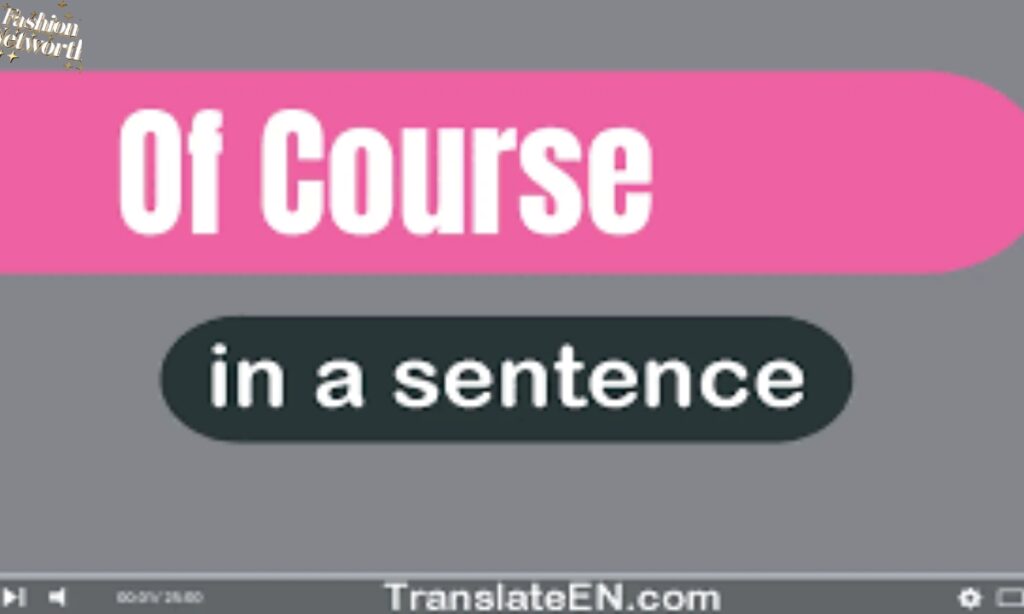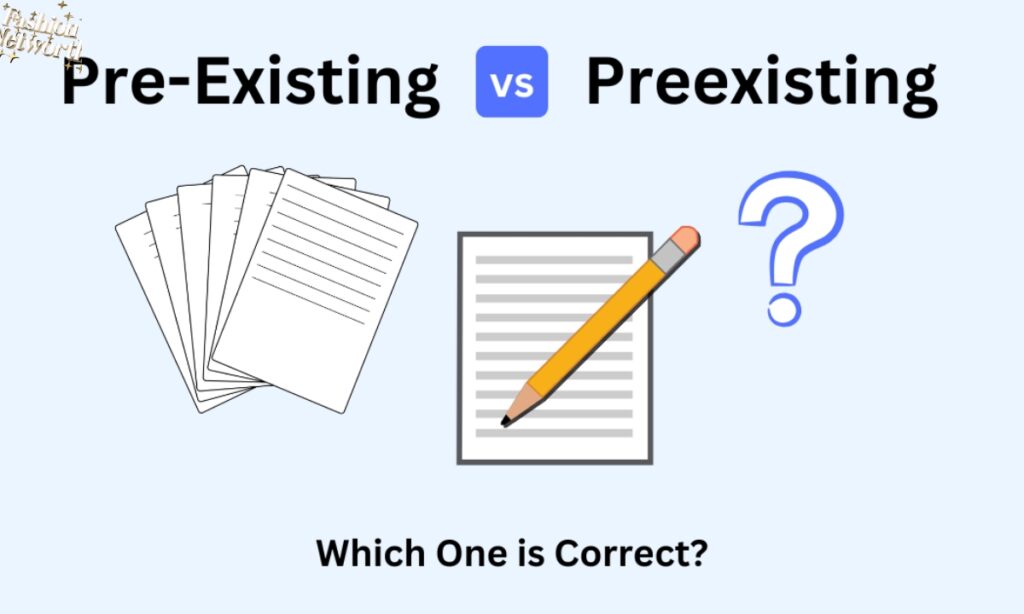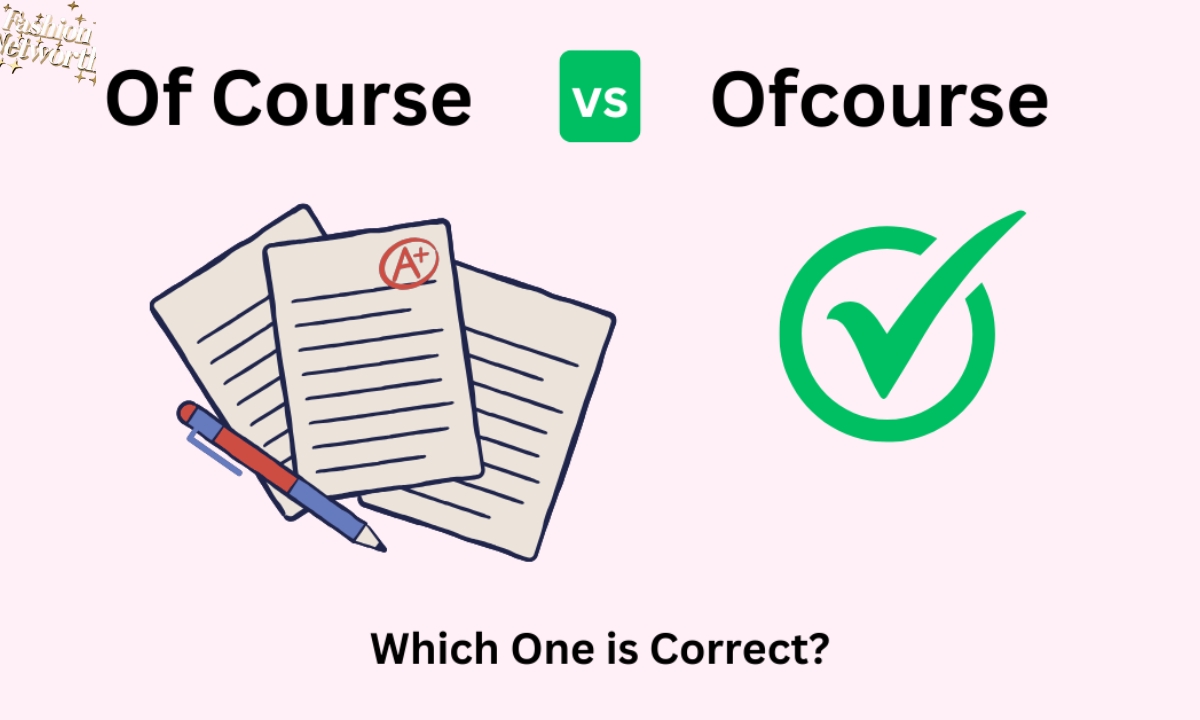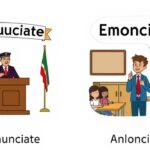When it comes to the phrase “of course,” many people often find themselves wondering whether it should be written as one word or two. This confusion stems from the way certain words in English can sometimes blend together, like “nevertheless” or “altogether.”
But when it comes to “of course,” the correct form is always two separate words. In this article, we will explore the correct usage of “of course,” its origin, meaning, and how to use it properly in different contexts.
Understanding the Correct Spelling: ‘Of Course’ or ‘Ofcourse’?
The phrase “of course” is a commonly used expression in English, but many people mistakenly write it as a single word: “ofcourse.” This is incorrect. The correct spelling is always two words: “of” and “course.” The confusion arises because it sounds like one word when spoken, but it remains distinct when written.
Writing “of course” as one word, “ofcourse,” is a common spelling error. It’s important to remember that English has many compound words, but “of course” is not one of them. Think of it like “of the” or “on the” you wouldn’t combine those either.
The Origin and Meaning of ‘Of Course’
The phrase “of course” dates back to older English, where it was originally part of the expression “as a matter of course.” This expression meant something that was natural or expected in the course of events. Over time, the phrase was shortened to simply “of course.”
Today, “of course” is used to emphasize certainty, agreement, or permission. It’s an expression that conveys a strong affirmation or response to a question, often implying that the answer is obvious or unquestionable.
How ‘Of Course’ Is Used in Sentences

“Of course” is a versatile phrase, used in many situations to convey a range of meanings, including agreement, permission, or to state something obvious. It’s often used as a polite way to say “yes.”
For example, if someone asks, “Can you help me with this task?” you might respond with “Of course!” to express your willingness. Similarly, when asked a simple yes/no question, such as “Is the sky blue?” your response could be “Of course it is!” to affirm the obvious.
The History of the Phrase ‘Of Course’
As previously mentioned, the phrase “of course” evolved from the older English expression “as a matter of course.” This usage referred to something that was done regularly or naturally, much like a standard practice. Over time, the expression was shortened, and “of course” emerged as we know it today.
Common Mistakes: Why People Misspell ‘Of Course’
The most common mistake people make with the phrase “of course” is writing it as “ofcourse.” This mistake occurs because, when spoken, the two words flow together, making it sound like a single word. However, the correct form is always two separate words.
Other reasons for this mistake include the influence of spellcheck and autocorrect features, which often correct “ofcourse” to “of course” automatically, without us realizing the mistake. It’s important to be aware of this and check your spelling before finalizing any text.
Grammar Rules: When to Use ‘Of Course’
The phrase “of course” can be used in a variety of contexts, but it’s especially useful when you want to give an enthusiastic or confident response to a question. It’s commonly used to express agreement, permission, or to state the obvious. For example, if someone asks, “Can I sit here?” you can reply, “Of course!” to indicate it’s not a problem.
However, “of course” should be used carefully in more formal or academic writing. In those contexts, it’s better to avoid overuse and opt for other phrases, such as “certainly” or “without a doubt,” which are more neutral and formal.
Read This Blog: Mike McDaniel Age and Career – Everything You Need to Know
The Role of ‘Of Course’ in Polite Expressions
“Of course” is often used in polite conversation as a way to express agreement or willingness. When you want to show enthusiasm or willingness to help, “of course” is a great choice. For example, if someone asks, “Would you like to join us for dinner?” a response like “Of course, I’d love to!” sounds friendly and eager.
In addition to showing enthusiasm, “of course” is often used to reassure the person asking a question. For example, “Will you be able to attend the meeting?” “Of course, I’ll be there!” This conveys not only agreement but also assurance and positivity.
Using ‘Of Course’ to Indicate the Obvious
Sometimes, “of course” is used to emphasize something that is so obvious it doesn’t need further explanation. For instance, if someone asks, “Does the sun rise in the east?” you might respond with “Of course!” to indicate that this is common knowledge.
While it’s helpful to convey the obvious, be cautious not to overuse this form of “of course.” Overusing it can make you come across as condescending, especially in situations where the information is widely known or easy to understand. It’s important to keep the tone light and friendly.
Phrases Similar to ‘Of Course’ That Often Confuse
In English, there are several phrases that are similar to “of course” but are often used in slightly different contexts. These phrases can cause confusion when deciding which to use. Here are a few examples:
- “Certainly” – This is similar to “of course” but is often more formal.
- “Definitely” – This expresses certainty, much like “of course,” but may sound less conversational.
- “Absolutely” – Another phrase with similar meaning, but often more emphatic.
Understanding the nuances of these phrases can help you choose the right expression based on context and tone.
‘Of Course’ in Literature and Press Examples
“Of course” is used widely in both literature and the press to convey agreement or certainty. For example, in literature, a character might say “Of course, I’ll help you” to show willingness. In journalism, “Of course” is often used to introduce statements that are universally accepted or obvious facts.
In speeches, politicians or public figures may use “of course” to address commonly acknowledged issues or to lead into more complex topics. The phrase helps create a connection with the audience by acknowledging common ground before moving on to new information.
Final Tips on Using ‘Of Course’ Correctly
To ensure you’re using “of course” correctly, keep in mind the following tips:
- Use it sparingly – Overuse can dilute its impact. Use it to emphasize agreement or certainty, but avoid overdoing it.
- Pay attention to context – While “of course” works well in casual conversation, be cautious when using it in formal writing or professional settings.
- Avoid sounding condescending – When stating the obvious, ensure the tone remains friendly and non-patronizing.
By following these guidelines, you’ll master the art of using “of course” effectively and naturally in your speech and writing.
Read This Blog: Jason Statham Wife Age, Name, and What You Need to Know
How to Remember the Correct Usage of ‘Of Course’

To avoid the common mistake of writing “ofcourse,” remember the following:
- Break the phrase down: Think of it as “of” + “course.”
- Say it out loud: When you say it, emphasize both words to keep them distinct.
- Practice: The more you use it correctly, the more natural it will feel.
Navigating the Nuances of ‘Of Course’
The tone of “of course” can change its meaning. It’s important to adapt your tone depending on the situation:
- Enthusiastic tone – “Of course! I’d be happy to help.”
- Sarcastic tone – “Of course it’s raining… again.”
- Matter-of-fact tone – “Of course, water freezes at 0°C.”
Adjusting your tone ensures that “of course” accurately conveys your intended message.
The Power of Tone
The tone in which you use “of course” can drastically change its meaning. When spoken with enthusiasm, it shows eagerness. When spoken sarcastically, it conveys irritation or frustration. Be mindful of your tone to ensure your response is appropriate for the context.
‘Of Course’ in Different Contexts
“Of course” can be used in various settings:
- In professional settings, it shows agreement or willingness.
- In informal settings, it adds warmth and friendliness.
- In academic writing, it may come across as too casual unless used carefully.
Consider the environment and adjust your language accordingly to maintain professionalism.
Common Pitfalls to Avoid
While “of course” is a useful phrase, there are some common pitfalls to watch out for:
- Overuse – Using it too much can make your speech or writing sound repetitive.
- Misuse in formal writing – Avoid using “of course” in overly formal or academic contexts unless necessary.
By being mindful of these issues, you can use “of course” more effectively.
Alternatives to ‘Of Course’
If you find yourself using “of course” too often, consider these alternatives:
- Certainly
- Definitely
- Absolutely
- Naturally
- Without a doubt
These alternatives can add variety to your speech or writing while still conveying a similar meaning.
‘Of Course’ in Different English Dialects
“Of course” is used in all varieties of English, but it may sound slightly different depending on the region. For instance:
- In American English, it is casual and commonly used.
- In British English, it may carry a slightly more formal tone.
- In Australian English, it’s often used in a relaxed, friendly way.
Adjust your usage based on the cultural context of the conversation.
The Evolution of ‘Of Course’ in Digital Communication
In digital communication, “of course” has evolved. Shortened versions like “ofc” are used in texting and online chats, but it’s important to remember that “of course” should be used in full in professional writing or formal settings.
Mastering ‘Of Course’ in Writing
When writing, “of course” can enhance your tone, making it more conversational or friendly. However, avoid using it excessively in formal essays or professional reports, as it can seem too casual.
The Psychology Behind ‘Of Course’
Using “of course” can have a psychological effect on both the speaker and the listener. For the speaker, it conveys confidence and certainty. For the listener, it fosters a sense of agreement and shared understanding.
Frequently Asked Questions
Which is correct, off course or of course?
Of course is correct. “Off course” refers to something that has deviated from its intended path.
When to use ofcourse?
The correct form is “of course”, and it’s used to express certainty, agreement, or the obvious.
Is it correct to say of course yes?
Yes, “of course yes” is a common phrase used to emphasize agreement.
Is there space between ofcourse?
Yes, the correct form is “of course”, with a space between the two words.
Is it professional to say of course?
Yes, but it should be used sparingly and appropriately in formal contexts.
Conclusion
The phrase “of course” is a simple yet powerful expression. It means “certainly” or “without a doubt,” and it’s used to express agreement, permission, or to indicate something obvious. Always remember to write “of course” as two separate words and use it thoughtfully in conversation and writing.

Hayyat is a talented content writer and digital marketer with expertise in SEO, social media management, and online marketing. She excels at creating impactful, data-driven content to help businesses connect with their target audience and achieve measurable outcomes.














